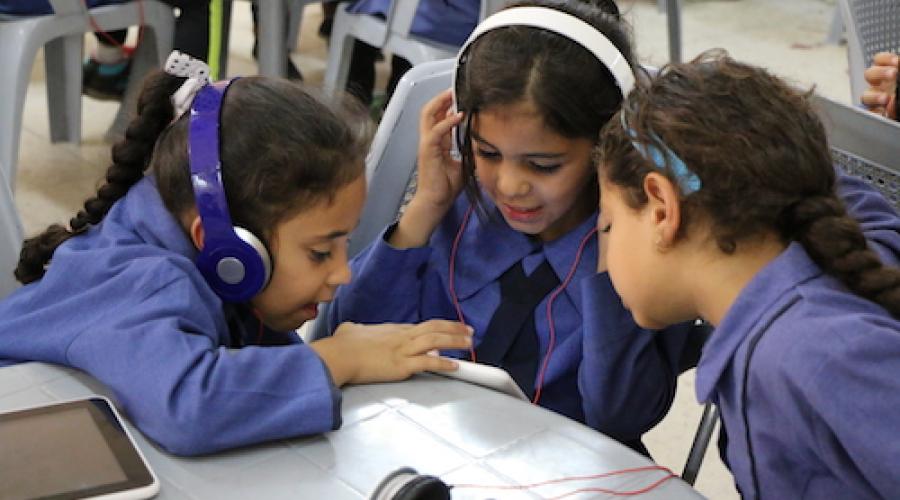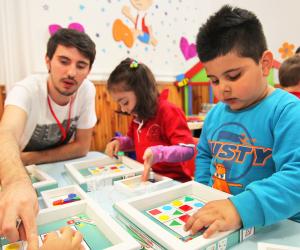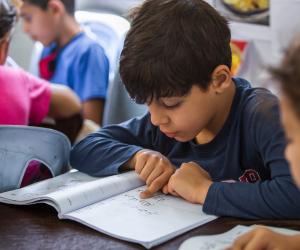Image

Research paper
PISA 2018: Exploring Jordan’s Performance
939
0
Executive summary
This brief explores data from the Organization for Economic Cooperation and Development’s (OECD) Program for International Student Assessment (PISA) for the year 2018, released in December 2019, with a focus on Jordan. Jordan’s performance is explored in comparison with performance in previous years and other countries. Descriptive analysis is also used to explore variations in student performance based on student and school attributes.
Key findings
- Two in every five students in Jordan performed below the minimum proficiency level in science and reading, and three in five students were below minimum proficiency in math.
- Jordan’s students scored an average of 429 in science, 419 in reading and 400 in math, showing a modest increase since previous cycles, but falling well behind the average OECD country performance in all three domains.
- Jordan performed an equivalent of approximately two grade levels behind the OECD average in math, and an equivalent of one grade level behind OECD countries in reading and science.
- Jordan’s students performed relatively well in the three subjects when compared to the four other Arab participating countries, and performed along the lines of select countries in the same income classification as Jordan.
- Jordan has one of the largest gender achievement gaps among all PISA participating countries, with girls outperforming boys in the three subjects. The gap in reading specifically has slightly decreased in 2018 when compared to previous cycles, largely due to improvements in male student performance, while female students’ scores remained stagnant. However, the largest gender gap in 2018 was in reading, with girls outperforming boys by 51 points; a difference equivalent to more than one grade level difference.
- Unsurprisingly, a positive relationship between student socio-economic status and performance was found; students with higher socio-economic status scored higher across the three domains of PISA.
- A negative relationship between grade repetition and performance was found; students who reported repeating grade levels in the past, scored much lower than their counterparts who had reported not repeating.
- Students in non-public schools, which includes private and United Nations Relief and Works Agency for Palestinian Refugees (UNRWA) schools, outperformed their public school counterparts by an equivalent of approximately one grade level difference across the three domains
Quick links

